There is no question that Visa provisioning service provides flexibility to customers. When thinking about credit cards, mobile device payments, purchase authorization, and the provisioning services that they provide, there is no question why Visa is considered a leader in the industry.
What is a Visa provisioning service charge though?
Visa could be considered the forefather of licensed general-purpose credit cards. The Visa program existed under a different name early on, but took on the brass Visa nameplate in 1976.
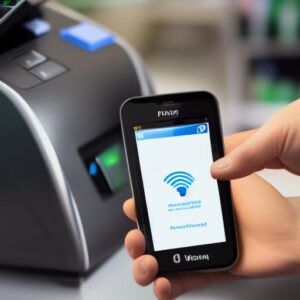
Almost 50 years later, Visa is still around offering the best technology and best services to their customers including their visa provisioning service and the latest consumer payment options.
Visa’s provisioning service is a popular option for businesses in the United States. This allows them to easily accept mobile transactions, with benefits like tokenization and load balancing that can help reduce costs when processing payments through apps on your phone or tablet device! One company that uses this method of payment is Apple Pay users – they’ve been able to take advantage from having access to over 150 million merchant locations around the globe using Visa’s “Visa Checkout” platform.
This article will explain what is Visa provisioning service, how it operates, and how it benefits consumers with flexibility and convenience.
What is the Visa Provisioning Service?
The Visa Provisioning Service is a platform that streamlines payment experiences for both consumers and merchants. It works by securely storing payment credentials, such as credit card information, in a digital wallet that can be accessed across multiple devices.
Key features of the service include tokenization, which replaces sensitive data with unique identifiers, and real-time updates to ensure accuracy and security. Implementing the Visa Provisioning Service can provide benefits such as increased convenience for customers, reduced fraud risk for merchants, and improved overall payment efficiency.
How Does the Visa Provisioning Service Work?
This section outlines the operational process of a payment provisioning system, which has been adopted by major financial institutions and merchants worldwide, with an estimated 80% of all new payment cards being issued through this method.
The Visa Provisioning Service (VPS) is a technical implementation that enables banks or issuers to securely provision their customers’ payment credentials into digital wallets or other devices using an API integration. It offers a streamlined tokenization process that replaces sensitive card data with unique tokens for each device, reducing the risk of fraud in case of data breaches.
The transaction flow starts when a customer initiates a purchase on their mobile device using their digital wallet, which sends a request to the VPS to verify the payment credentials and generate a one-time-use token for that transaction. The token is then transmitted to the merchant’s point-of-sale system via payment gateway integration, where it is decrypted and submitted to the acquirer for processing.
This seamless process simplifies payments and enhances security while reducing costs associated with card reissuance due to lost or stolen cards.
Key Features of the Visa Provisioning Service
The Visa Provisioning Service offers a range of key features that make it an attractive option for payment providers and merchants. One of its most significant advantages is enhanced security through tokenization, which replaces sensitive data with randomly generated tokens that cannot be used to access the original information. This ensures that customer data remains secure, even if it is intercepted during transmission or storage.
Another key feature of the service is simplified payment processes for customers using digital wallets on their mobile devices. By eliminating the need to enter card details manually for each transaction, customers can enjoy faster, more convenient checkout experiences.
Additionally, the Visa Provisioning Service reduces costs associated with card reissuance due to lost or stolen cards by providing an efficient system for updating customer account information across multiple devices and platforms. Implementation of this system requires careful planning and adherence to best practices in order to ensure optimal performance and security measures are in place at all times.
Benefits of Implementing Visa Provisioning Service
With enhanced security and simplified payment processes, implementing the Visa Provisioning Service can provide significant benefits for payment providers and merchants seeking to optimize their systems and improve customer satisfaction. By providing a secure platform for managing card-on-file data, the service eliminates the need for merchants to store sensitive information on their own servers, reducing the risk of data breaches. This enhanced security not only protects customers’ personal information but also helps build trust with them, leading to increased loyalty and repeat business.
The Visa Provisioning Service also streamlines transactions by simplifying the process of updating payment information when cards expire or are lost/stolen. Rather than requiring customers to manually update their information across multiple platforms, the service automatically updates stored card details in real-time.
This results in increased efficiency for both merchants and customers, reducing errors and friction points in the payment process. Ultimately, these benefits combine to create a seamless payment experience that improves customer satisfaction while also enabling businesses to operate more securely and efficiently.
| Benefit | Emotional Response |
|---|---|
| Increased efficiency | Convenience |
| Enhanced security | Trust |
| Improved customer satisfaction | Satisfaction |
| Simplified processes | Ease-of-use |
| Streamlined transactions | Speed/efficiency |
How to Implement Visa Provisioning Service?
The implementation of the Visa Provisioning Service can be a complex process, but with proper guidance and best practices, it can be streamlined.
A step-by-step guide to implementing the service can help developers and merchants navigate the technical requirements and ensure successful deployment.
In addition, understanding best practices for integrating the Visa Provisioning Service can optimize payment experiences for users and improve overall business operations.
Step-by-Step Guide to Implement Visa Provisioning Service
This section provides a comprehensive guide for implementing the Visa Provisioning Service, which is designed to streamline payment procedures for businesses. The implementation process involves several steps that require technical expertise and attention to detail. To ensure successful integration with existing payment systems, it is essential to follow the guidelines provided by Visa and test the deployment thoroughly before going live.
Here are some key steps to follow when implementing the Visa Provisioning Service:
- Determine your business requirements and technical needs.
- Ensure you have met all of Visa’s technical requirements before beginning implementation.
- Test your solution in a staging environment before deploying it in production.
- Troubleshoot any issues that arise during testing or deployment, as needed.
By following these steps, businesses can effectively implement the Visa Provisioning Service and streamline their payment processes with ease.
Best Practices for Integrating Visa Provisioning Service
Optimizing the integration process of Visa’s Provisioning Service requires adherence to proven best practices that can enhance payment procedures for businesses, ultimately resulting in higher efficiency and better user experience. Integrating a new service into an existing system often presents challenges, particularly when it involves sensitive customer data. However, with proper planning and attention to detail, businesses can ensure a seamless transition that benefits both themselves and their customers.
One critical aspect of integrating Visa Provisioning Service is ensuring industry adoption. Businesses should work closely with industry partners to encourage the widespread use of this service. A lack of adoption could lead to difficulties in onboarding customers or obtaining necessary performance metrics.
Additionally, data privacy must be a top priority throughout the integration process. Ensuring compliance with relevant regulations and implementing robust security measures can help protect sensitive information from unauthorized access or misuse.
By following these best practices, businesses can successfully integrate Visa Provisioning Service into their payment systems while minimizing risk and maximizing efficiency.
| Integration Challenges | Best Practices |
|---|---|
| Encouraging Industry Adoption | Work closely with industry partners to promote adoption |
| Customer Onboarding | Provide clear instructions for users during onboarding process |
| Data Privacy | Ensure compliance with relevant regulations; implement robust security measures |
| Performance Metrics | Monitor key metrics before and after implementation; make adjustments as needed |
Common Use Cases for Visa Provisioning Service
This subtopic will discuss the common use cases for Visa Provisioning Service.
E-commerce is one of the key areas where this service can be used to enhance payment security and user experience.
Mobile wallets also benefit from this technology as it enables seamless transactions.
Additionally, subscription services can utilize Visa Provisioning Service to streamline recurring payments, making it easier for customers to manage their subscriptions.
E-commerce: Enhancing Payment Security and User Experience
In the realm of e-commerce, enhancing payment security and user experience has become a critical priority for businesses, with studies indicating that 47% of consumers abandon their online purchases due to security concerns. Visa Provisioning Service offers a way to address these concerns by providing a secure and seamless checkout process.
This service enables businesses to securely store their customers’ payment information in the cloud, allowing for easy and secure access to this data during transactions. Visa Provisioning Service also includes user authentication and fraud prevention features that help mitigate the risk of fraudulent transactions.
These features include tokenization, which replaces sensitive card data with a unique token, making it more difficult for hackers to steal or misuse this information.
Additionally, Visa Provisioning Service is optimized for mobile devices, ensuring that users can easily complete transactions on-the-go. With its focus on payment innovation and user experience enhancement, Visa Provisioning Service is an essential tool for businesses looking to succeed in today’s competitive e-commerce landscape.
- Securely store customer payment information
- Mitigate risk of fraudulent transactions
- Optimize checkout process for mobile devices
- Improve overall user experience
Mobile Wallets: Enabling Seamless Transactions
Mobile wallets have emerged as a popular solution for facilitating seamless transactions in the modern digital landscape. These digital wallets allow users to store their credit/debit card information, loyalty program details and other payment-related data on their smartphones.
This eliminates the need to carry physical cards or cash and streamlines the payment experience. Popular mobile wallets include Apple Pay, Google Wallet, PayPal, Samsung Pay and Visa Checkout.
Payment integration has become a critical component of mobile wallets. With increasing demand for contactless transactions, mobile payments are becoming an integral part of businesses’ strategies for enhancing user experience.
In recent years, digital wallets have witnessed significant growth due to payment innovation and technological advancements such as biometric authentication (fingerprint scanning/face recognition) that enhances security while making payments more convenient than ever before.
As consumers continue to demand convenience in payment methods, it is likely that the use of mobile wallets will only increase in popularity in the coming years.
Subscription Services: Streamlining Recurring Payments
Subscription services have emerged as a popular solution for automating regular payments, allowing users to set up recurring transactions that simplify the payment process and provide a steady stream of revenue for businesses. Payment automation is one of the key benefits offered by subscription services, as it eliminates the need for customers to manually initiate payments each time they make a purchase or pay a bill. This saves both time and effort, making it more likely that customers will choose to continue using the service over time.
Customer retention is another important benefit of subscription services. By offering an easy-to-use payment system with automatic renewals, businesses can create a more seamless experience for their customers, reducing the likelihood that they will switch to a competing product or service.
Additionally, billing optimization allows companies to maximize their revenue potential by providing customized pricing plans and promotions based on customer behavior and preferences.
With these tools in place, subscription management becomes easier than ever before – enabling businesses to focus on delivering high-quality products and services while still maintaining strong relationships with their customers over time.
Security Measures of Visa Provisioning Service
The security measures of Visa Provisioning Service are vital in ensuring the safety and confidentiality of payment data. Two key areas of focus for these measures are fraud prevention and risk management, as well as compliance with Payment Card Industry Data Security Standards (PCI DSS).
By implementing strict protocols to prevent fraudulent activities and adhering to PCI DSS guidelines, the Visa Provisioning Service provides a secure framework for seamless payment experiences.
Fraud Prevention and Risk Management
Effective fraud prevention and risk management strategies are crucial to ensure the security and integrity of payment systems. The Visa Provisioning Service (VPS) employs various measures to prevent fraudulent activities from occurring on its platform. One of these measures is risk mitigation, which involves identifying potential risks and taking proactive steps to prevent them.
VPS uses advanced algorithms to analyze transaction data in real-time, enabling it to detect suspicious activities before they can cause any harm. Fraud detection is another critical aspect of VPS’s fraud prevention strategy. The service leverages machine learning technologies that enable it to recognize patterns in transaction data that may indicate fraudulent activities.
Additionally, VPS incorporates identity verification checks into its payment authentication process, ensuring that only authorized users can access the system. Finally, transaction monitoring allows VPS to track all transactions made on its platform continually. Any suspicious activity detected during this process triggers an automatic alert for further investigation by VPS’s dedicated team of fraud analysts.
In summary, VPS’s comprehensive approach to fraud prevention and risk management ensures a secure payment experience for all users on its platform.
Compliance with Payment Card Industry Data Security Standards (PCI DSS)
Ensuring compliance with Payment Card Industry Data Security Standards (PCI DSS) is essential for safeguarding sensitive payment information and maintaining consumer trust, thereby reducing the risk of data breaches and potential financial losses.
PCI DSS compliance challenges arise due to the constantly evolving data security regulations and new payment security risks that emerge in the digital age. Merchants must ensure they comply with these standards to avoid merchant liability issues arising from security breaches or non-compliance.
Cybersecurity threats are a significant concern for merchants, as cybercriminals target vulnerable systems to gain access to sensitive payment information. Failure to comply with PCI DSS can result in fines, legal action, and reputational damage.
Therefore, it is crucial for businesses to implement robust data security measures that align with PCI DSS requirements. This not only protects their customers’ personal information but also enhances their reputation as a trusted service provider who values their customers’ privacy and security.
What Is Tokenization In Visa Provisioning?
Tokenization is a method of protecting card data and ensuring payment security in Visa Provisioning. It replaces card data with a generated token, helping to protect cardholder information from fraudsters.
Data encryption is also used to authenticate transactions and prevent unauthorized access to card data. Together, tokenization and data encryption provide an extra layer of fraud prevention that helps ensure secure payments.
Tokenization
Tokenization is a process that is central in the world of payment security. It involves replacing sensitive card information with a unique token, which can be used for transactions without exposing any personal data.
Tokenization Explained shows how this technique ensures that digital wallets and mobile payment solutions are secure against payment fraud. The authentication methods used during tokenization guarantee the safety of customers’ financial details as they make purchases online or via their mobile devices.
With this technology, consumers do not have to worry about storing their credit card details on multiple websites and applications because a single token serves all purposes. This reduces the risk associated with using different platforms and improves overall customer experience.
In summary, Tokenization has become an essential tool to help businesses boost e-commerce sales while ensuring consumer confidence in making payments through digital channels. By reducing instances of Payment Fraud, it enhances trust between merchants and customers.
As more people embrace cashless transactions, Tokenization will play an increasingly significant role in keeping everyone’s financial information safe and secure.
Card Data Security
Now that we have a better understanding of Tokenization and its importance in payment security, let’s dive deeper into how it works specifically for Visa Provisioning.
When we talk about Visa Provisioning, we refer to the process of securely provisioning digital cards onto mobile devices or e-commerce platforms. This process involves sensitive card information, which highlights the need for robust data protection measures.
Card Data Security is an essential aspect of Visa Provisioning as it protects consumers from data breaches and fraud prevention. To ensure secure transactions, EMV technology and PCI compliance are used along with encryption methods such as tokenization.
Two-factor authentication is also employed during this process to add another layer of security, ensuring only authorized individuals can access the card details.
Overall, Card Data Security plays a crucial role in protecting customers’ financial information during Visa Provisioning. With increasing concerns over online fraud, businesses must adopt advanced security measures like tokenization to gain customer trust and loyalty while enhancing their overall shopping experience.
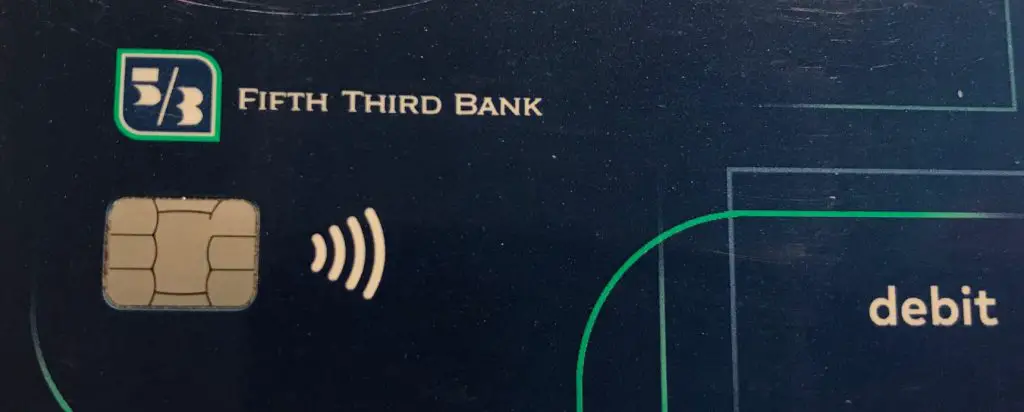
How To Use Tokens?
I’m not familiar with token-based authentication, so can you explain what it is? And how does it differ from token-based authorization?
I know that tokens can be used for visa provisioning service charges and mobile purchase authorizations, but what other ways can tokens be used?
Are there any security risks associated with using tokens?
Token-Based Authentication
Are you concerned about the security of your mobile payments? Token-based authentication methods can help provide an extra layer of protection for payment processing.
Digital tokens are used instead of transmitting sensitive information, such as credit card numbers or bank account details, during a transaction. This method of token based security ensures that even if someone intercepts the data being transmitted, they will not have access to any valuable financial information.
Mobile payments continue to grow in popularity and with it comes the need for increased payment security. With tokenization, when a customer makes a purchase authorization on their device, a digital token is created which represents their specific payment details.
The merchant then sends this encrypted token through the payment processing system to complete the transaction without exposing any personal financial information.
By utilizing this method of authentication, merchants and customers alike can rest assured knowing that their transactions are secure.
In conclusion, token-based authentication methods have become increasingly important in today’s world where online shopping has become commonplace. It provides an additional layer of protection against fraud and theft by using digital tokens to represent sensitive financial information rather than transmitting it outright.
As more people adopt mobile payments as their preferred way to shop, implementing this type of payment security becomes essential for businesses looking to remain competitive while also keeping their customers’ data safe and secure.
Token-Based Authorization
Now that we have discussed the importance of token-based authentication methods for payment security, let’s delve deeper into how to use tokens.
Token-based authorization is a crucial aspect of securing digital wallets and mobile payments. It involves creating a unique token that represents sensitive financial information during transactions instead of transmitting it outright.
To use tokens effectively, businesses must implement robust security measures in their payment processing systems. These measures include encrypting data transmissions, using firewalls to protect against cyber-attacks, and conducting regular vulnerability assessments. By implementing these fraud prevention techniques, merchants can ensure that their customers’ personal and financial details remain secure throughout the transaction process.
In addition to providing enhanced security, token-based authorization also streamlines the checkout process by reducing the time required for manual input of credit card or bank account details. This results in a more seamless experience for customers, which can lead to increased customer trust and loyalty.
As such, incorporating tokenization into your payment processing system not only protects against fraud but also helps improve overall user experience.
Is Visa Provisioning Service Safe?
Yes provisioning service by Visa is safe. This type of account facilitates transactions between merchants accepting card less payments and customers without requiring any information other than email address at registration. It also features various security measures such as PIN authentication in addition to tokenized data encryption during transmission both over NFC (contactless) terminals and wireless networks like Wi-Fi
The visa program is not without its flaws. It is safe and works through a third-party service provider (TPPS) that is responsible for storing all customer data.
How Does NFC Technology Impact Visa Provisioning Service?
NFC (Near Field Communication) technology is a set of short-range wireless technologies capable of transferring data to and from electronic devices. Visa provisioning service can be used with NFC technology for contactless payments, but it will only work if the phone has an NFC smartphone chip embedded in its hardware.
NFC technology started gaining traction in the early 2000s. Contactless payment cards were introduced by Visa and MasterCard, while mobile payments became popular through Apple Pay and Android Pay on smartphones.
The NFC technology has been evolving ever since with new security standards being set to protect contactless transactions from fraudsters like hackers or skimmers who might intercept data during transmission between card terminals and phones.
Some mobile network operators take advantage of the contactless NFC technology by embedding an NFC-enabled SIM card in their customers’ phones.
Apple’s newest iPhone models are equipped with NFC chips which makes them more secure when authenticating for visa provisioning service enabled apps such as UberEATS, iMessage, AirPods etc., because of its encryption algorithms for tokenized transmissions over wireless networks including Wi-Fi.
How Does Visa Provisioning Service Differ from Other Types of Mobile Payment Services?
A lot of other mobile payment services like Google Wallet and Softcard make use of near-field communication (NFC) technology.
The differences between Softcard and Visa provisioning services is that Softcard is a closed-loop network, meaning it only accepts payments from banks who are also members of the Softcard association.
Visa provisioning services on the other hand can be used with any type of card and doesn’t have to be an Visa credit or debit card.
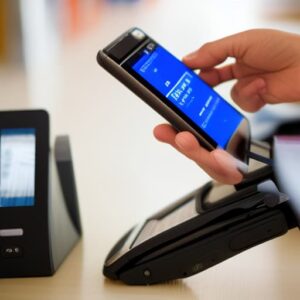
An issuing bank may choose for their cards to support a Visa provisioning payment account as long as they meet certain requirements. This option would allow them to provide their customers access to in store contactless transactions using mobile devices without needing proprietary connection hardware like NFC terminals which typically cost about $450 per terminal.
The largest financial institutions worldwide currently use visa provisioning services such as MasterCard’s OneTouch PayPass and American Express’ Bluebird by American Express Serve Card.
When you take advantage of NFC methods, you don’t have to worry about voiding checks.
How Does Visa Provisioning Service Work for Consumers? What Steps are Involved for a Cashless Transaction?
For consumers to make a cashless transaction with visa provisioning service using NFC technology, they need to:
- First have an NFC chip as part of their debit card or credit card.
- Next the consumer must simply pass their debit or credit card over the NFC enabled terminal in order to complete the transaction.
The Future For Mobile Payments and Contactless Card Reader Services:
Mobile Payments are popular services such as PayPal and Apple Wallet are beginning to take off due to their convenience factor – no more worries about forgetting your wallet or breaking up that $20 bill!
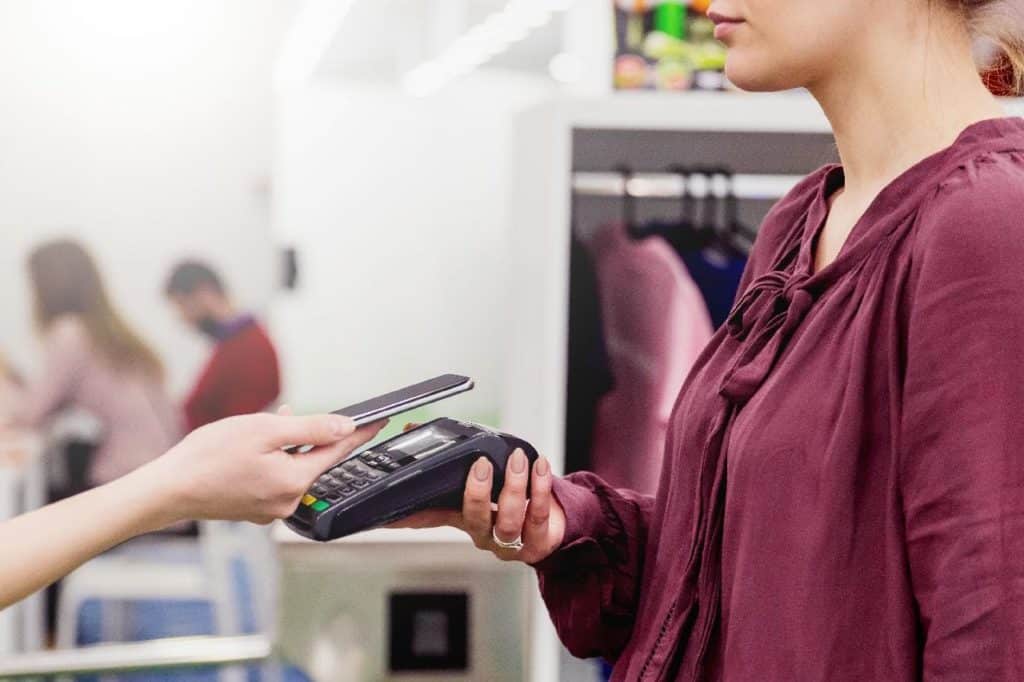
As the NFC “tap” process becomes a more common method of payment, contactless card reader services will only become more prevalent.
How Does Visa Provisioning Facilitate Mobile Purchases?
Security is a major factor when it comes to online purchases, so Visa’s provisioning helps to ensure all transactions are secure.
It authorizes each transaction, so you can make purchases knowing they’ll be safe.
It’s also very convenient, making it easier to quickly purchase items from your mobile device.
Plus, it only charges a small service fee for each purchase, so you don’t have to worry about any extra costs.
With Visa’s provisioning, you can be sure your mobile purchases are secure and authorized, and you can do it all quickly and conveniently.
Security
When it comes to mobile purchases, security should always be a top priority. With the increasing number of data breaches and cyber attacks happening nowadays, Visa Provisioning takes cybersecurity measures seriously by implementing various authentication methods to ensure fraud detection and password protection.
One such method is biometric authentication, which requires users to provide their unique physical traits like fingerprints or facial recognition before authorizing any transaction. Visa Provisioning also ensures that merchants who use its service comply with strict security protocols to prevent potential threats.
This includes using encryption technologies in storing sensitive information such as credit card details and personal data. Furthermore, Visa employs advanced fraud detection tools that analyze user behavior patterns and detect unusual transactions that could signify fraudulent activities.
In conclusion, while convenience is one of the primary reasons for adopting mobile purchasing, it should never come at the cost of security. That’s why Visa Provisioning places significant emphasis on ensuring cybersecurity through multi-factor authentication methods, biometric identification systems, and fraud detection mechanisms. By doing so, Visa provides peace of mind both for customers who want secure transactions and for merchants who want to protect their businesses from potential threats.
Authorization
Now that we’ve discussed how Visa Provisioning ensures the security of mobile payments through authentication methods and fraud detection tools, let’s move on to another critical aspect: authorization.
Payment authorization is an essential step in completing a transaction securely while preventing fraudulent activities. To facilitate this process, Visa Provisioning sets transaction limits for mobile payments based on user behavior patterns and historical data.
Moreover, Visa implements strict security measures to prevent unauthorized access or tampering with payment details during transmission. These measures include encryption technologies and tokenization processes that replace sensitive information like credit card numbers with unique tokens. This way, even if hackers intercept data transmissions, they won’t be able to decipher any crucial information.
In addition, Visa Provisioning collaborates with merchants to ensure they comply with its guidelines regarding fraud prevention and payment authorization procedures. Merchants must authenticate transactions using multiple factors such as one-time passwords (OTPs) or biometric identification systems before processing them.
By doing so, both customers and merchants can rest assured that their transactions are secure from start to finish without compromising convenience.
Convenience
Now that we’ve discussed how Visa Provisioning ensures the security and authorization of mobile payments, let’s dive into another critical aspect: convenience.
Visa Provisioning strives to enhance the user experience by promoting accessibility through various payment options. Customers can choose from different modes such as contactless payments, in-app purchases, or QR code scanning. This flexibility allows customers to select their preferred approach and make transactions seamlessly.
Visa Provisioning also understands the importance of customer support in facilitating mobile purchases. In case of any issues during a transaction, users can reach out to Visa for assistance promptly. The company provides 24/7 customer service via phone calls or online chats to ensure customers’ concerns are addressed efficiently.
Moreover, while ensuring secure transactions, Visa Provisioning aims to maintain convenience without compromising on safety measures. By implementing advanced technologies like biometric authentication and tokenization, they have built an ecosystem where customers need not worry about fraud or data breaches but enjoy seamless transactions instead.
Overall, with its commitment towards security measures, accessible payment options, excellent customer support system and maintaining convenience in mind; Visa Provisioning has revolutionized the way people conduct mobile payments worldwide.
How to Maintain Visa Provisioning Services
Maintaining provisioning services by Visa can be done either through individual, consumers, or organizations (App developers).
Individual consumers can visit their visa account or visa.com/provisioning to do this, which can be done by either downloading the Visa Token Service or SMS service onto a device or linking it with your personal mobile number and then receiving an approval code on that phone.
Organizations might have different processes for loading consumers into their system. Some organizations upload consumers manually from spreadsheets downloaded via API request.
The privacy with using purchase authorization visa provisioning service is an individual choice.
What Are The Advantages of Visa Provisioning Services?
One of these advantages includes: visa provisioning service being available in more than 200 countries, it offers better security than other methods, and it can be customized for individual business needs.
Other advantages of Visa provisioning services include that it is a user-friendly system, its a provisioning service that can be used in both online and mobile transactions, and it offers an outstanding level of security. The security of Visa provisioning services is not compromised because it uses the same security and encryption as other visa services.

It also offers a solution for merchants that want to have more control over their data or need an advanced level of profile management, while still using Visa’s service. It’s considered a top security tool for advantages of online shopping for customers.
The Visa’s in this system can be customized with different levels of detail depending on what type of merchant you are:
- from retailers who only require basic information about customers to financial organizations that might need detailed credit card histories across multiple providers.
In addition, purchase authorization visa provisioning service provides advantages such as:
- it can help reduce costs by reducing fraud rates (especially when combined with EMV chip-card technology) and helps businesses focus on boosting sales rather than processing transactions along with better customer retention too.
What Are The Disadvantages to Visa Provisioning Services?
There are some disadvantages for using visa provisioning services if you are a consumer. One disadvantage is not being able to make purchases on mobile apps or websites, and also because visa provisioning service is a third party, there might be some additional fees.
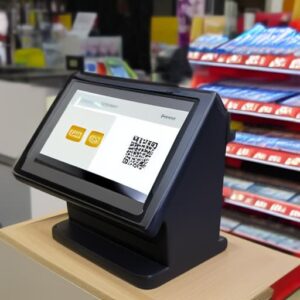
Other disadvantages for consumers are having to give up privacy on their visa account and being tracked for the company which is using visa provisioning service. You could use a credit card for auto-payments.
Other Consumer Disadvantages of Visa Provisioning Service:
- Higher Risk of Identity Theft
- Credit Card Fraud
- Unauthorized Purchases
A transaction may be declined for a number of reasons, such as insufficient funds or incorrect account information, but the most common reason contains to authorizing. TD bank purchase authorization for example occurs when a debit card and ATM purchases are made without sufficient funds in the account.
There are some consumers that prefer non NFC payments because of the above issues.
Business Disadvantages to Visa Provisioning Service:
There are also disadvantages for businesses who use visa provisioning service, such as having to give up some control over transactions and making it difficult when they want to change processing vendors since the company would have to deactivate Visa Provisioning Service before going with a new one.
There might be additional fees too if their credit cards expire or they choose not renew them (though this can depend on what type of provider you go with).
Another disadvantage is that there may be conflicting data between your financial institution’s records and those of the third party company so it could lead to increased fraud cases.
Companies That Use Visa Provisioning Service
The information regarding the advantages noted above are why so many companies are using visa provisioning service in the US for mobile and financial transactions.
Many companies are using provisioning services and tokenization for purchases. One of the most common businesses using the service are visa provisioning service Apple Pay is Apple. By using a tokenization process, some companies see benefits in overall company customer loyalty and security.
A lot of consumers see visa provisioning service charge on accounts and get concerned that there was a fraudulent purchase. This type of notation on accounts is perfectly normal to see VPS charges on statements.

Companies know that mobile payments are the future of business transactions and they are not alone. They are quickly adapting to embrace new technologies and are finding themselves using visa provisioning service more than ever.
Still, some companies are more hesitant and are still using non NFC financial or mobile transaction methods such as magnetic swipes, chip cards, etc.
If you’re a business owner who is on the fence about if visa provisioning service will work for your company’s needs, you can contact Visa directly.
Does Amazon Do Visa Provisioning Service?
Amazon does use visa provisioning service and uses the tokenization process.
Amazon’s visa provisioning service is known as “Verified by Visa” and it allows customers to use their Amazon account information for a visa payment account without having to input additional login details when they checkout.

Most Amazon customers think provisioning service is a good idea. You could take advantage of mobile accounts and use visa provisioning service if you’re selling goods online as an extra layer of security for the customer.
Does Netflix Use Visa Provisioning Service?
Netflix does use visa provisioning service but they also have their own mobile payment system for their accounts. Netflix is known for using “Chase Pay” which is a pay system you can activate in the Netflix app on your phone and then pay by tapping a button or entering a PIN at checkout. You can download payment details from your account.
Provisioning services are used by many transit operators, organizations, network providers, banks, organizations, and many other new service providers.
Below are some companies that use Visa Provisioning Service:
- Starbucks
- Macy’s Inc
- Amazon.com, Inc.
- Citibank’s mobile banking apps
- Netflix
- Pioneer Services Corporation
- Apple
- Dell Financial Services LLC
- Google (USAA Google Pay)
- Sony Playstation Store
- Samsung
- Nordstrom, Inc. (Canada) Limited Partnership
- The Home Depot Credit Card Company LLC
- Chase Bank USA
How to Deactivate Visa Provisioning Services
While many think that a provisioning service is a must have, others prefer to make payments using their own card. If visa provisioning service isn’t for you and want to deactivate it, below are some steps on how to do that:
- Go into your phone settings
- Scroll down until you reach “apps” or “applications”
- Select Visa Provisioning Service from the list of apps
- Tap or click “Uninstall” in order to delete this app off your device. This will ensure that no charges can be made through visa provisions when not authorized by the user.”
Deactivating can be a good idea if you want to save some time on entering your credit card information, or if you are using a prepaid visa. If you are concerned about privacy, then deactivation is also a good idea because no one will able to make any transactions without your credit card information.
Deactivation is a sure way to protect your account and information.
Can You Temporarily Turn Off Provisioning Services?
You can temporarily turn off visa provisioning services by turning your phone off or putting away the device. You can also contact the company online providing visa provisioning service to help turn it off. Most companies that provide provisioning services will assist in turning it off, but you may have to call them.
Read: What is an eCheck and How Does it Work?
Related Questions & FAQs:
Does Visa Provisioning Service Work Outside of the US?
No, it does not currently operate internationally at all so if an international traveler wants their card used abroad they will need another non NFC option such as Pay Pass from Mastercard which allows overseas transactions without needing any mobile network for cash.
What is Visa Provisioning Service $0?
A lot of people see the $0 zero dollar and are excited because they could get something for free by just agreeing to have their card provisioned. That is not the case. The Visa provisioning service $0 charge is a one-time charge on your credit or debit card statement that is validating your mobile phone number and address for a Visa card.
Why is Visa Provisioning Service Important?
Visa Provisioning service is important because it is the service that bridges mobile payments with a credit card. It ensures that every transaction goes through as successfully and effortlessly as possible, giving users peace of mind for their transactions. Additionally, the use doesn’t have to physically use any money.
How Much Does Visa Provisioning Service Charge Cost?
The cost of the Visa Provisioning Service Charge can vary depending on a number of factors, including whether you’re comparing it to other similar services.
In addition to helping with payment authorization and mobile compatibility, this service also offers card linking capabilities and transaction restrictions that can be useful for managing your finances. Overall, while there may be some costs associated with using this service, many users find that it’s well worth the investment in terms of added convenience and security features.
What Types Of Mobile Devices Are Compatible With Visa Provisioning?
Did you know that over 5 billion people worldwide now own a mobile device? With such a vast number of users, it’s no wonder that Visa has partnered with various mobile wallet providers to offer payment compatibility through their provisioning service. To ensure seamless integration, Visa Provisioning is compatible with a wide range of devices and meets specific requirements for mobile wallets to work effectively. From Apple Pay to Samsung Pay, the options are endless when it comes to using your smartphone as a digital wallet thanks to Visa’s commitment to mobile integration.
Are There Any Restrictions On The Types Of Transactions That Can Be Authorized Through Visa Provisioning?
Transaction limitations, security measures, payment options, user authentication, data privacy, and fraud prevention are all important factors to consider when authorizing transactions through Visa Provisioning. While there may be restrictions on certain types of transactions that can be authorized due to security and fraud concerns, the service offers multiple payment options and strong user authentication protocols to ensure safe and secure transactions.
Additionally, Visa takes data privacy seriously and implements strict measures to protect users’ personal information from unauthorized access or use. Overall, while there may be some transaction limitations in place for security purposes, Visa Provisioning prioritizes safety and protection for its users.
Can Multiple Credit Or Debit Cards Be Linked To A Single Mobile Device Through Visa Provisioning?
Did you know that 67% of people use their mobile devices for banking and financial transactions? With the rise in mobile usage comes concerns about security measures, mobile device management, user authentication, payment limits, transaction history, and card management.
One question often asked is whether multiple credit or debit cards can be linked to a single mobile device through Visa Provisioning. The answer is yes – but with caution. It’s important to always prioritize security measures and ensure that proper mobile device management protocols are in place. User authentication should also be implemented to prevent unauthorized access. Payment limits can help manage spending while transaction history allows users to monitor their activity. Finally, card management tools allow for easy addition and removal of cards as needed.
By taking these precautions, linking multiple cards to a single mobile device can be done safely and efficiently.
Conclusion
So if you were wondering what is visa provisioning service now you know. As you can see, the world of e-commerce and mobile payments is changing, and the provisioning services ecosystem will continue to grow as online shopping continues to increase. The technologies such as provisioning services are a great way to take payments and make purchases without the need for you to be present.
Visa Provisioning Service is safe because your card information can only be accessed by an authorized merchant, company providing visa provisioning service, or Visa organization. It also has tamper-resistant technology that ensures the data cannot be read from outside of mobile devices and the platform itself. It keeps the card purchase authorization safe.
The best thing about visa provisioning services is it’s easy to turn on/off. The technologies such as NFC make mobile payments and cardless payments easy and convenient. Many of today’s popular companies use visa provisioning service and NFC technology to make the process of payment and transactions easier.
Some people wonder why they should invest time and effort into visa provisioning services (VPP) technology as opposed to other forms of mobile payments such as NFC technologies?
Well there are many reasons for doing so: VPPS have been around longer than any other type of mobile payment method; some research indicates VPPS will eventually be more widely adopted due to its convenience; with VPPS users can turn off their cards for safety and security reasons; VPPS is currently accepted in more places than any other mobile payment method.
The good thing about provisioning service technology today is that it has evolved from just being able to use NFC technologies with contactless payments. One thing is absolute, the future of contactless payments will continue to evolve.
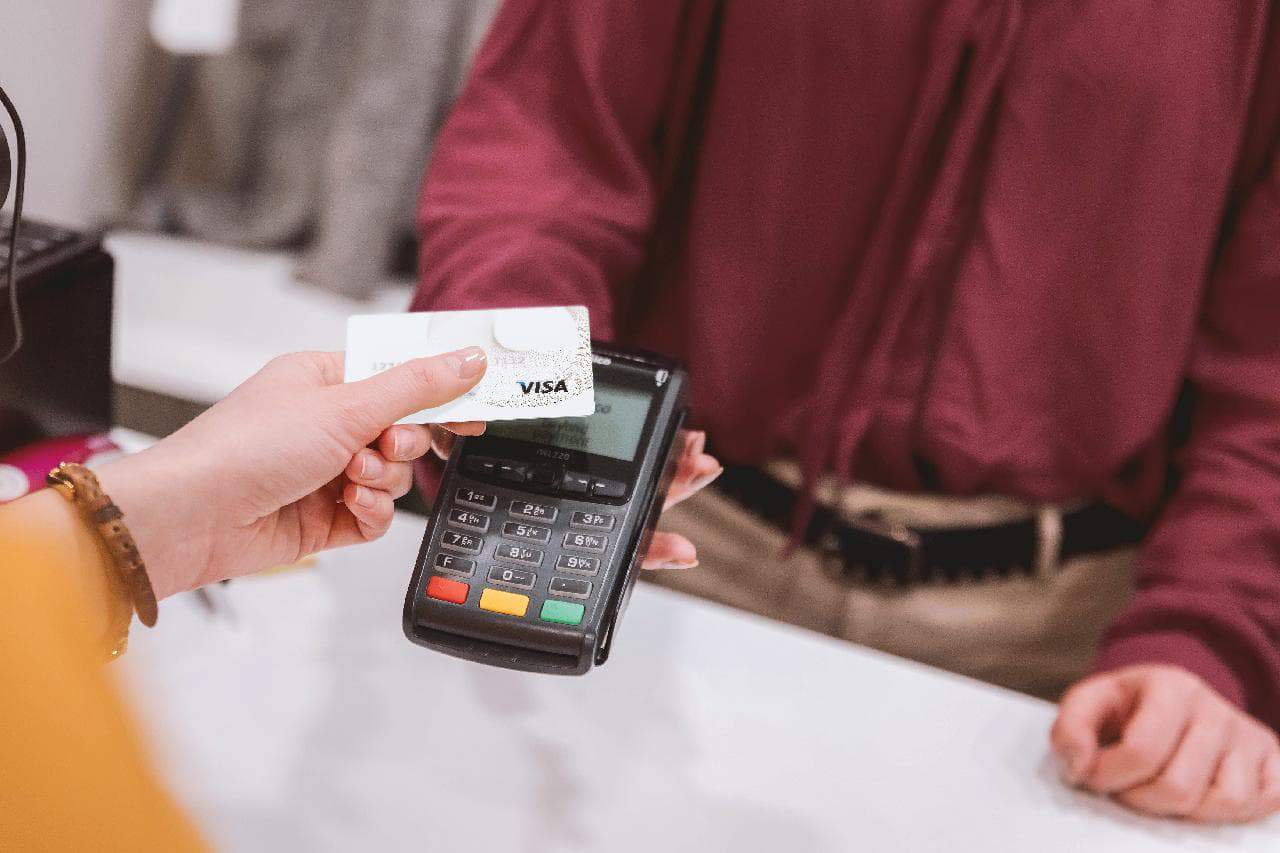



Leave a Reply